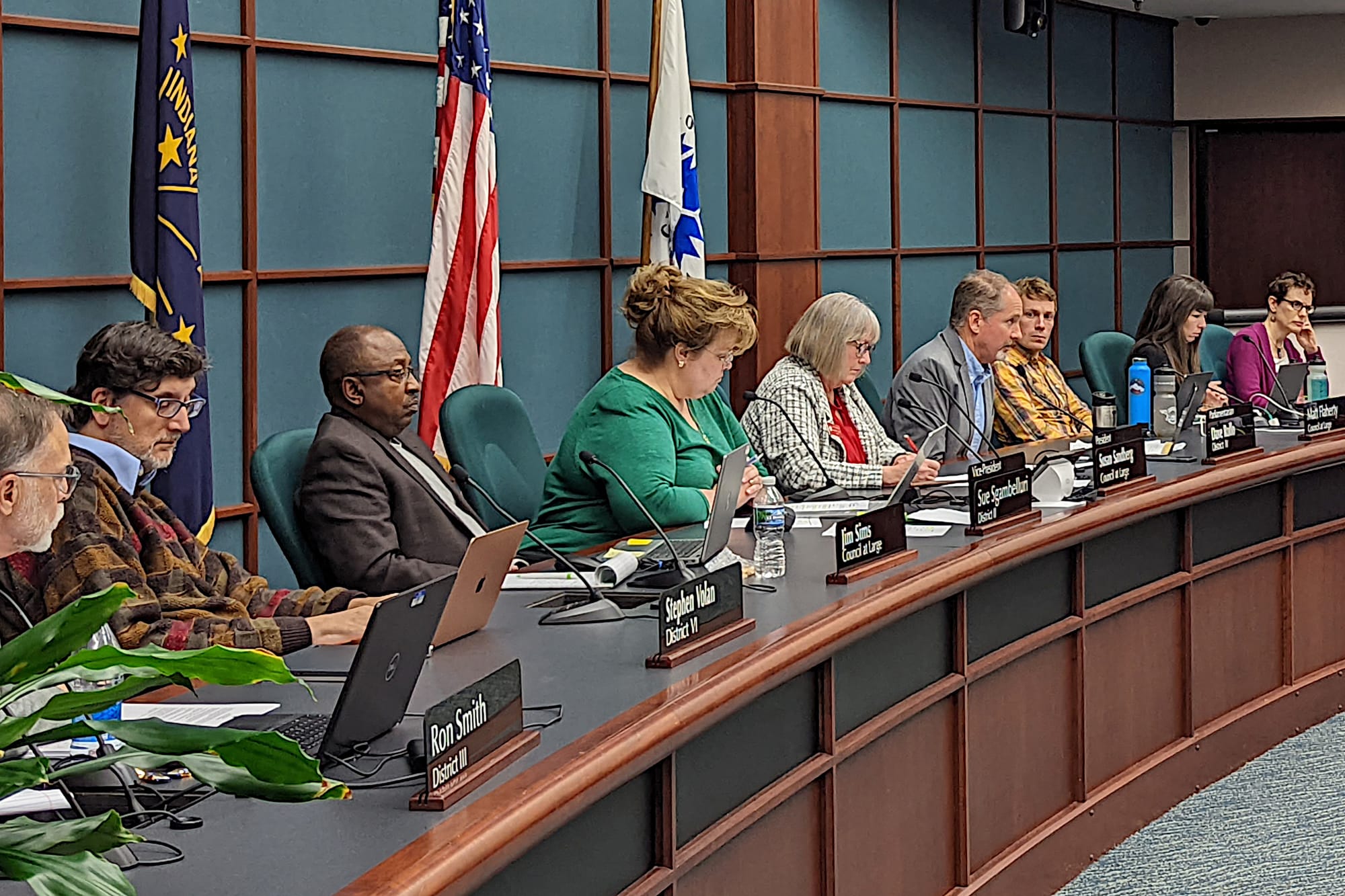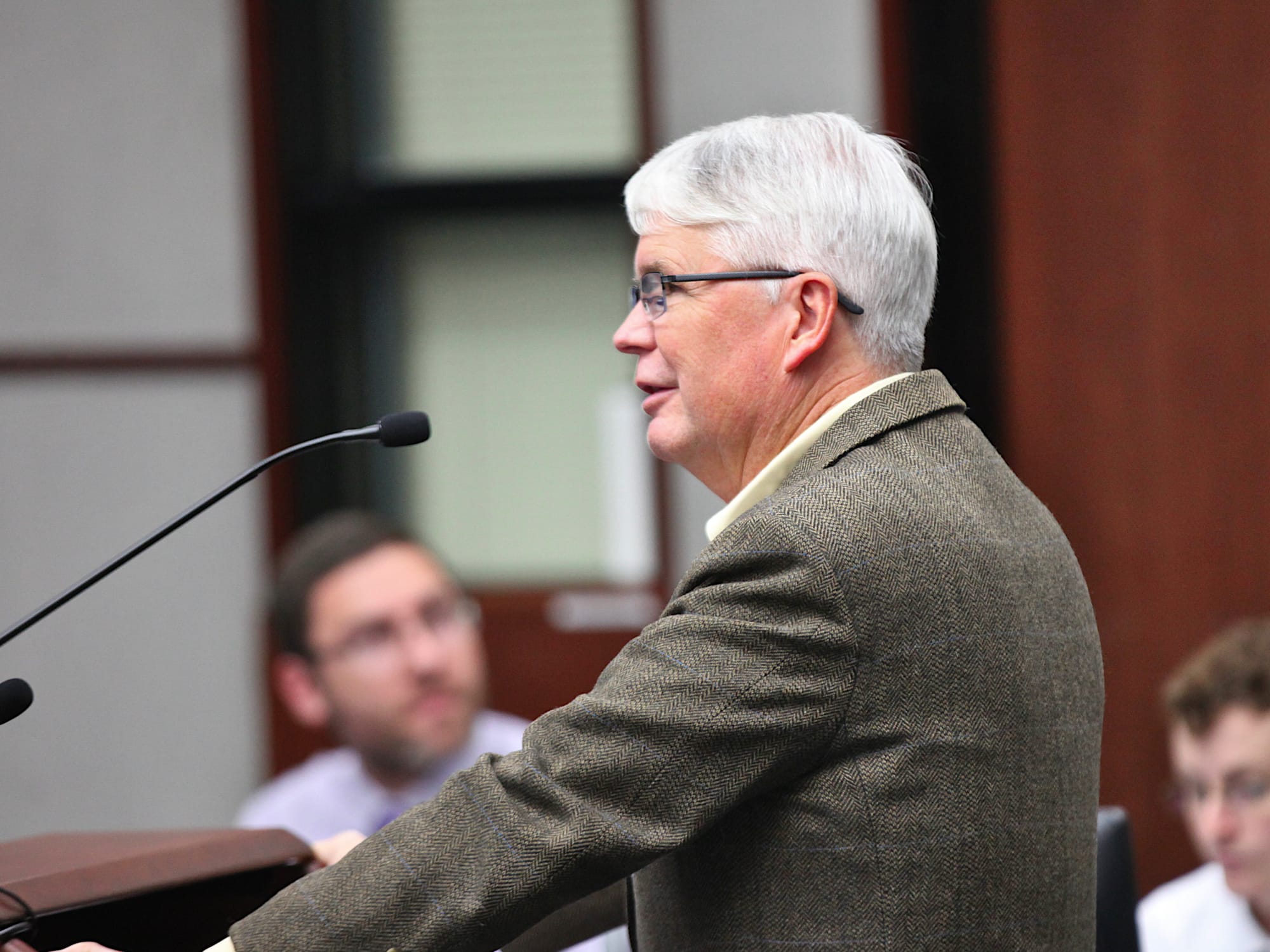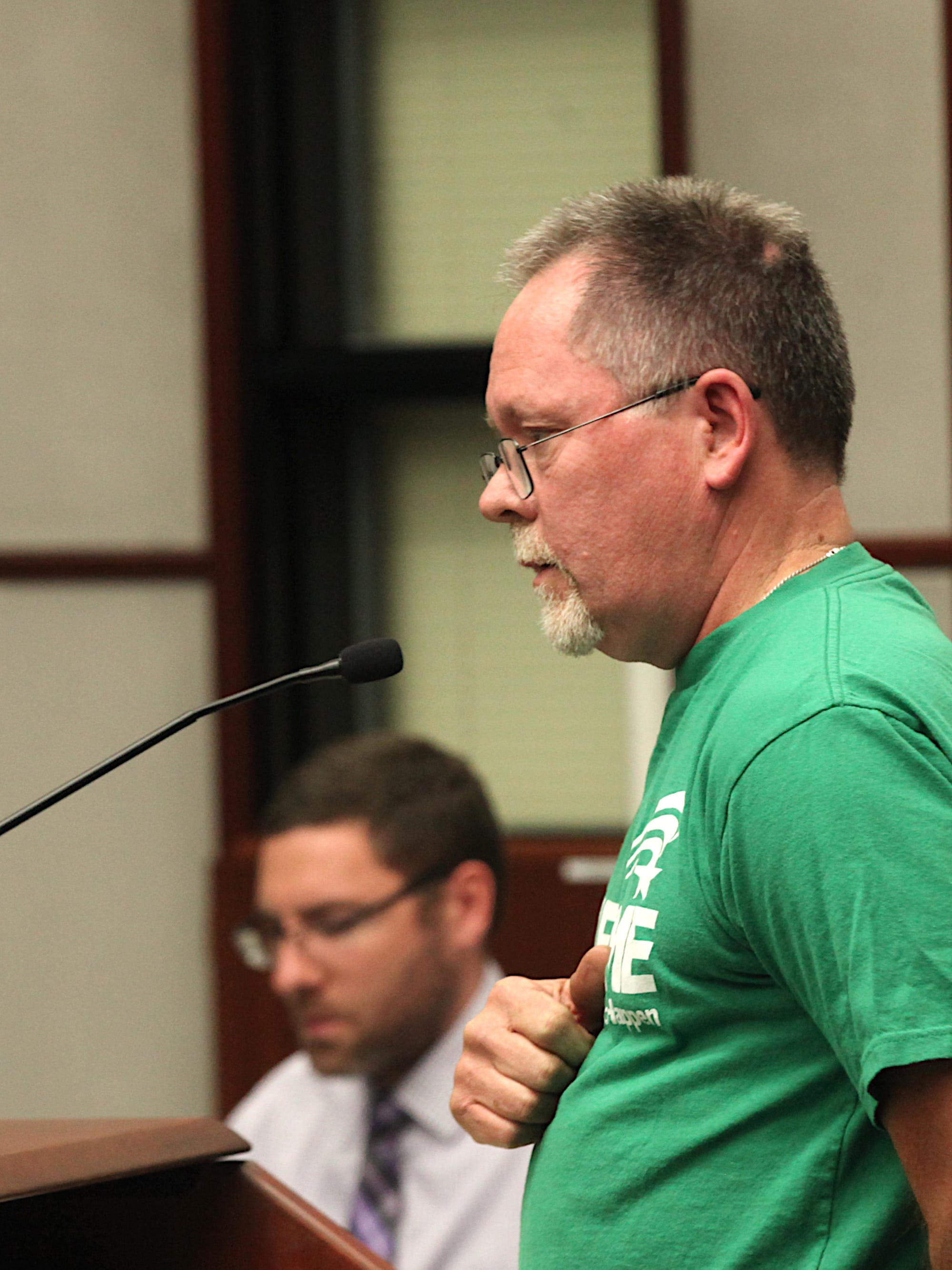Bloomington budget adopted, AFSCME workers get same pay (for now) as last year







On unanimous votes taken on Wednesday night, Bloomington’s city council adopted the six separate ordinances that make up the 2023 budget.
That meant the council chose not to confront Bloomington mayor John Hamilton’s administration in the same way it did last year, when it postponed a vote on the next year’s budget until late October.
Based on their deliberations in late September this year, indications had been that a delay similar to last year’s might have been in the works, especially on the ordinance that sets AFSCME member pay.
Just one councilmember, Jim Sims, had expressed support for that ordinance during late September deliberations. The straw poll results on that occasion showed five councilmembers voting no and three abstaining.
But on Wednesday, the salary ordinance that sets AFSCME pay for 2023 was adopted on a unanimous vote, with the same pay schedule for those workers as for 2022. When the current ongoing collective bargaining negotiations conclude with an agreement, that salary ordinance is supposed to be amended to reflect a pay increase.
City council chambers were filled on Wednesday night with more than 50 AFSCME members who pled with the council to support them in their ongoing contract negotiations. Their current four-year contract expires at the end of the year.
The acronym for the union name stands for American Federation of State, County and Municipal Employees. The union includes workers in utilities, the street and fleet divisions of public works, parks and recreation, sanitation, and the animal shelter, among others.
Compensation for AFSCME workers is set in the same ordinance that specifies salaries of all employees who are not in the police or fire unions. Under that ordinance, non-fire and non-police city workers who are not members of AFSCME are receiving a 5-percent increase this year.
The Hamilton administration’s memo in response to questions from city councilmembers states that the city currently has 173 AFSCME employees “on payroll.” A five-percent increase to match the increase for city non-unions workers would, according to the administration, “cost the city in excess of $500,000.”
Based on the 5-percent base salary increase, plus a one-time bonus of $1,000 and improved retirement and health care options, the Hamilton administration calculates that a $40,000-a-year employee would be getting an 11-percent bump.
AFSCME workers sound like they’re looking for way more than 5 percent.
Master motor equipment operator Allan Johnson told the council on Wednesday that based on current inflation and the small raises in the current contract, AFSCME compensation now is 18 percent less than it was two years ago. “We’re not asking for a huge raise. We’re wanting to stay where we were two years ago,” Johnson said.
Based on the $45,000 he makes now, 18 percent works out to an $8,100 increase. Johnson pointed out that the town of Ellettsville had given its employees a $10,000 raise for the coming year. Johnson wrapped up by saying, “We’re not asking too much.”
About the way that contract negotiations are going, AFSCME Local 2487 president Bradley Rushton described the administration’s first offer: “[It] was not an offer. It was an insult.”
Rushton picked up on a theme from previous meetings—that the AFSCME contract should be settled before the budget is adopted. Ruston addressed the implication that had been made at previous contract negotiations had always been timed after the adoption of the budget: “Well, that’s a correct statement with this administration,” Rushton said.
About the contracts that covered the time from January 2004 through December 2018, Ruston said, “All these contracts in previous administrations have been, have been accepted and put into practice, before budgets were finalized.”
Councilmember Dave Rollo said on Wednesday that he had agreed to support an increase in the local income tax earlier this spring, because he thought that employee salaries would be the main priority. “There’s a lot of priorities in the city, of course, and they’re important priorities. But it seems to me the highest priority should be city employees,” Rollo said.
But Rollo said, “I’m in a predicament because I feel I must vote for this…, because..if it were to fail, the non-union employees would not get their 5-percent base salary increase and the other benefits that the administration is offering.”
Rollo expressed his frustration more than once, “I just find it quite a mystery why an administration that is flush with funds appropriated by this council cannot meet its obligation to keep pace with inflation.”
Rollo indicated that consequence for the administration next year, if the AFSCME contract were not adequate, would be that he would not support future spending next year that could have gone into a better AFSCME agreement.
Rollo put it like this: “I’m going to be prepared to vote no, on non-essential appropriations coming in the next year.” Rollo added, “And I’m hoping that I can convince my colleagues to do the same—because that money would otherwise have gone to the union contract…”
Councilmember Matt Flaherty agreed with Rollo’s assessment of the importance of retaining employees and the limited role that the city council can play in affecting the level of compensation that AFSCME members receive.
“We only are harming ourselves if we can’t retain employees,” Flaherty said. He continued, “But when it comes to collective bargaining, there’s a very prescribed process and limited role that we can play.” Flaherty added, “Where we do have a place is in approving a salary ordinance update that would reflect any agreement.”
Flaherty concluded, “There’s no question that the funds are available for the coming year to appropriate any agreement that is reached between AFSCME and the city of Bloomington.”
The 2023 Bloomington budget this year comes in at around $129 million. That does not include the totals for Bloomington Transit or City of Bloomington Utilities.
The administration is hoping to wrap up an agreement with AFSMCE by mid-November.
Responding to a councilmember question, corporation counsel Beth Cate described the timeline for negotiations like this: “Well, I’m hoping to conclude them before I go away on a vacation in November.”




Comments ()